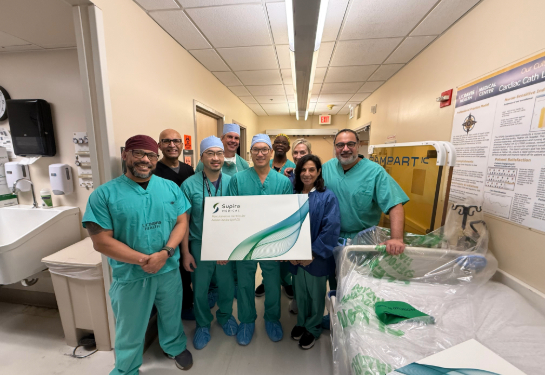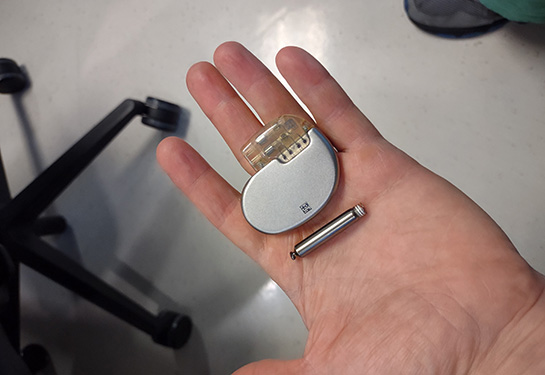UC Davis Health cardiology team is one of the first in the nation to use novel pVAD system
New device supports blood flow during high-risk cardiovascular stent procedures
Cardiologists at UC Davis Health are among the first in the country to use a novel, low-profile device to improve blood flow for cardiovascular patients undergoing high-risk and complex heart artery stenting procedures.
The device is called percutaneous ventricular assist device (pVAD). Its use is part of an early feasibility study being conducted through the UC Davis Clinical Cardiovascular Research Unit.
UC Davis Medical Center is one of four sites nationwide to have early investigational access to the Supira pVAD System and is the first hospital in Western United States to utilize it.
“We are excited to utilize this novel device for patients with complex coronary anatomy, problems with their blood flow and multiple diseases,” said Garrett Wong, clinical professor of cardiovascular medicine and co-principal investigator of the study. “This next-generation device may allow us to offer procedures to patients who otherwise would be too high risk.”
“This next generation device has the potential to allow us to offer procedures to a greater pool of patients who otherwise would be too high risk.” —Garrett Wong
How is this pVAD system different?
Cardiologists use pVADs during stent placement or angioplasty procedures to support blood flow for high-risk patients with severe coronary artery disease or comorbidities. Additionally, pVADs are used to treat patients suffering from cardiogenic shock, a condition that can occur following a severe heart attack. The condition is linked to a high rate of morbidity as a patient’s heart is suddenly too weak to adequately pump blood to vital organs.
The new pVAD system is smaller than current devices. The system includes multiple sensors to collect real-time aortic and ventricular pressures and help guide clinical management.
“The combination of a low-profile and high-flow system is extremely attractive as we look to address the risks of vascular complications associated with currently available devices.”—Tai Pham
“Achieving high flow rates has typically required larger devices, which can be challenging from both an access and positioning perspective,” explained Tai Pham, assistant professor of cardiovascular medicine and co-principal investigator of the study. “The combination of a low-profile and high-flow system is attractive as we look to address the risks of vascular complications associated with currently available devices.”
Results from this early feasibility study will be part of the submission to the U.S. Food and Drug Administration (FDA) for a pivotal investigational device exemption study.
A leader in cardiovascular clinical trials
The Supira pVAD System study is one of many clinical trials conducted by the Clinical Cardiovascular Research Unit. In the last 10 years, the unit has conducted studies and trials in many areas of cardiology, including heart valve disorders, congestive heart failure and hypertension.
“Being one of the first centers in the country to offer this novel system is a testament to our outstanding team-based approach to patient care,” added Thomas Smith, chief of cardiovascular medicine. “The cardiovascular research team is among the best and most comprehensive in the nation. Our mission of providing complete, efficient and high-quality care to the patients we care for is what drives us to lead the field.”






